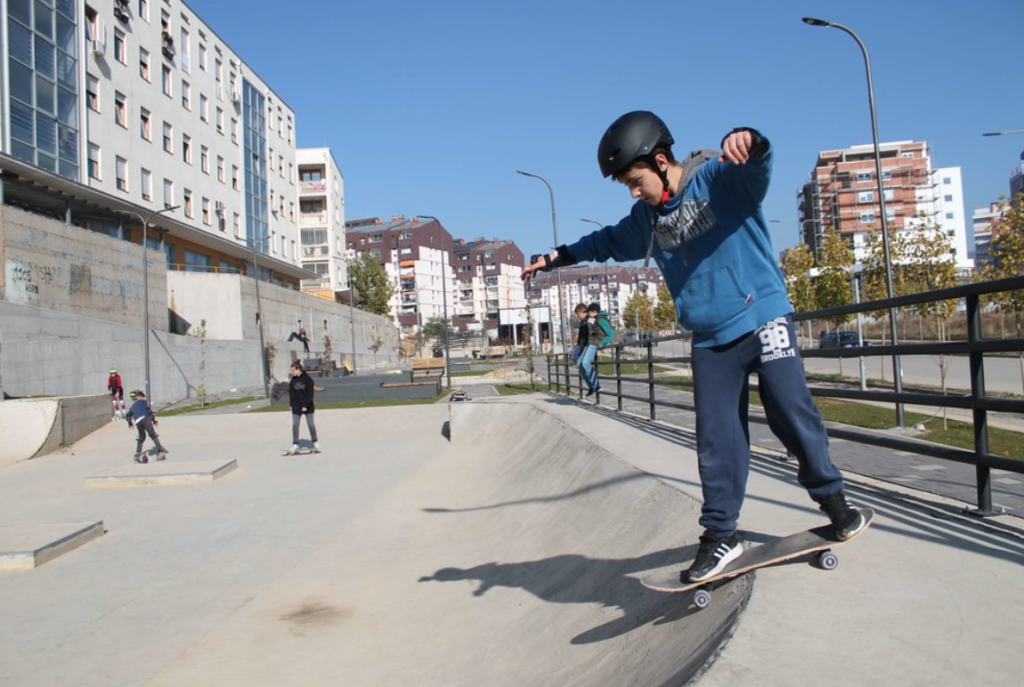16 June 2023, Nairobi. – City planning plays a crucial role in shaping the quality of life and fostering social cohesion within communities. In Kosovo, a region scarred by conflict and poverty, engaging youth in the process of city planning has emerged as a transformative initiative. Leveraging the power of Minecraft, a popular video game, the project titled “Building Peace in Kosovo” has successfully empowered young people to reimagine and revitalize public spaces in the cities of Pristina and Mitrovica.
A Need for Well-Designed Public Spaces
Kosovo has long struggled with ethnic tensions and economic challenges, making it one of the poorest areas in Europe. As its cities experience rapid growth, the demand for well-designed public spaces that cater to the needs of diverse communities becomes increasingly vital. Recognizing this need, the Municipality of Pristina partnered with UN-Habitat to implement the Block by Block Methodology for upgrading public spaces.
Revitalizing Pristina’s Sunny Hill Marketplace
The initial phase of the project focused on transforming the abandoned Sunny Hill marketplace in Pristina’s populous neighborhood. Over 70 residents participated in a Block by Block Workshop in 2015, where they engaged in discussions on urban design and the significance of public spaces. Dividing into small teams, they used Minecraft as a collaborative platform to model various solutions and co-create the final design.
The participants’ proposals, including a skatepark, gardens, resting areas, and a playground, were presented to urban professionals and the mayor of Pristina. These ideas laid the foundation for detailed architectural designs that are now being realized, effectively converting a neglected market into a vibrant, multifunctional public space.
Mitrovica: Extending the Success
Inspired by the success of the Sunny Hill project, the initiative expanded to Mitrovica, a city facing high unemployment and ethnic tensions. Mitrovica’s symbolic bridge over the Iber River represented the division between the Serbian and Albanian communities. The project aimed to revitalize the city market neighborhoods around the bridge, fostering interaction and unity among the two communities.
In 2016, a Block by Block Workshop brought together residents from diverse ethnic backgrounds. Using Minecraft, participants jointly envisioned ideas for the market neighborhood, bridging the gap between Mitrovica North and South. The Minecraft designs served as a blueprint for a market concept emphasizing social and functional mixes, community interaction, and urban regeneration. Construction began in 2017, with Kosovo exploring further city-to-city cooperation mechanisms to accelerate progress in urban revitalization and socioeconomic development.
Empowering Youth for Positive Change
The involvement of youth has been a defining aspect of the project’s success. By incorporating Minecraft as a participatory tool, the initiative provided young people with a platform to contribute their ideas and actively shape their communities. The inclusive nature of the project encouraged collaboration, ownership, and a sense of civic responsibility among participants.
Youth participants expressed their excitement and pride in seeing their Minecraft designs transform into real-life spaces. They recognized the significance of their contributions in making their cities better places to live. By involving young individuals in decision-making processes, the project instilled a sense of agency and empowerment, demonstrating that even the youngest members of society can play a meaningful role in urban development.

Impact: Beyond Physical Transformation
The impact of engaging youth in city planning through Minecraft extends far beyond the physical transformation of public spaces. The project has contributed to social inclusion, bridging divides among diverse communities and fostering interethnic cooperation. By involving residents from all walks of life, the initiative has nurtured a sense of shared ownership and pride in the public spaces they co-created.
Furthermore, the project has highlighted the potential of youth engagement in influencing policy change. By showcasing the valuable insights and creativity of young participants, decision-makers have been inspired to reconsider traditional approaches to city planning. The success of the initiative in Pristina and Mitrovica has prompted discussions on replicating the model in other areas, ensuring that every willing citizen has a chance to contribute to the positive transformation of their cities.
The “Building Peace in Kosovo” project, facilitated by UN-Habitat and the Municipality of Pristina, has harnessed the power of Minecraft to engage youth in city planning. Through the collaborative and inclusive nature of the initiative, young people have become catalysts for positive change, reimagining and revitalizing public spaces in Pristina and Mitrovica. By providing a platform for youth participation, the project has fostered social inclusion, economic opportunities, and policy change, demonstrating the transformative potential of engaging youth in shaping the future of their cities.



